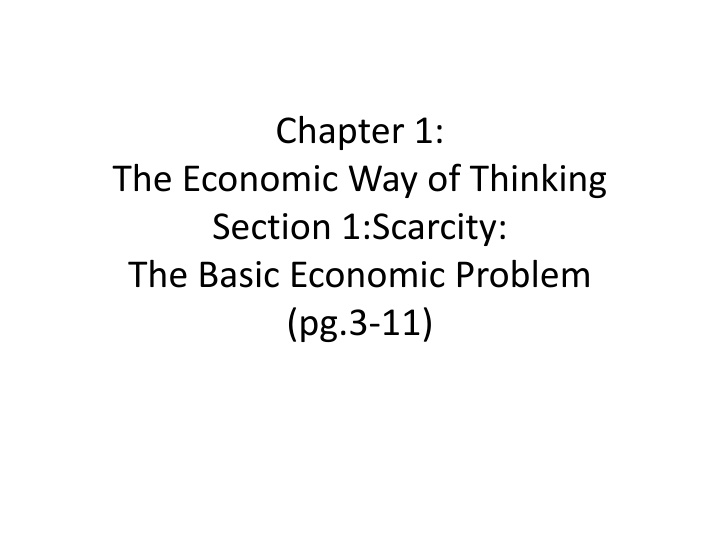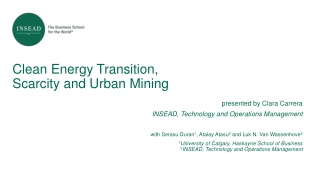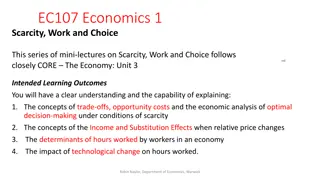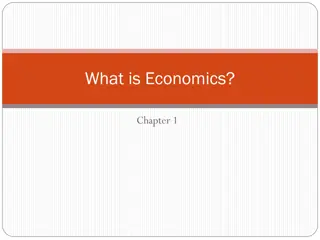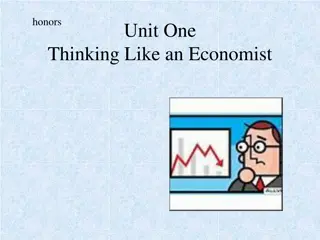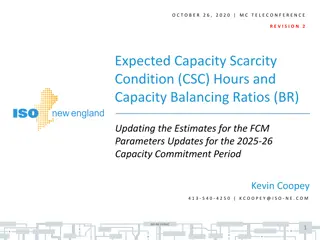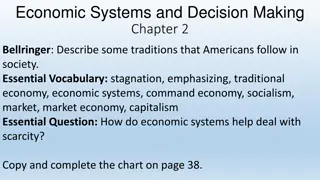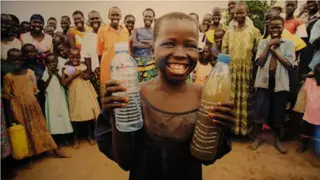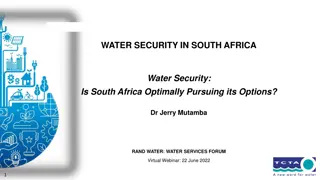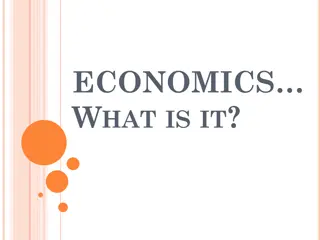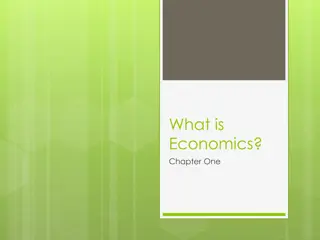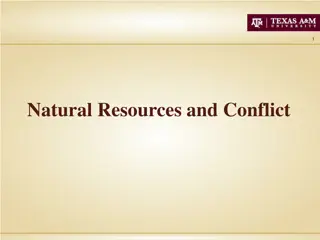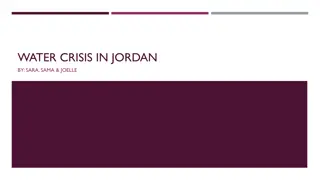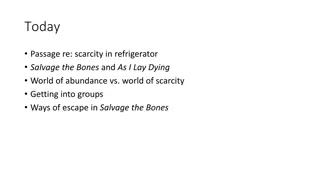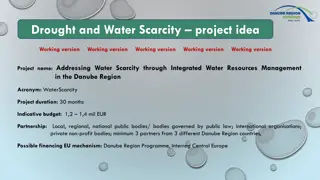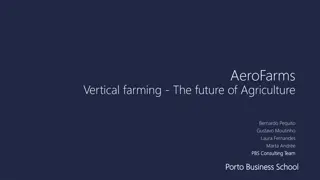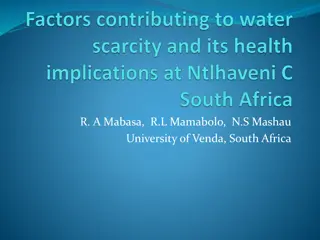Scarcity: The Economic Challenge
Economics is the study of how unlimited wants are satisfied with limited resources. Scarcity arises when there are not enough resources to fulfill all human desires, leading to choices on resource allocation. This fundamental issue confronts individuals, businesses, governments, and societies. Economics involves examining how scarce resources are used to satisfy wants, analyzing economic behaviors, and developing theories to explain how economies function and predict future outcomes. Principles of Economics highlight how choice, scarcity, and opportunity cost influence decision-making for individuals and societies. Goods and services play a key role in the exchanges between consumers and producers.
Download Presentation

Please find below an Image/Link to download the presentation.
The content on the website is provided AS IS for your information and personal use only. It may not be sold, licensed, or shared on other websites without obtaining consent from the author.If you encounter any issues during the download, it is possible that the publisher has removed the file from their server.
You are allowed to download the files provided on this website for personal or commercial use, subject to the condition that they are used lawfully. All files are the property of their respective owners.
The content on the website is provided AS IS for your information and personal use only. It may not be sold, licensed, or shared on other websites without obtaining consent from the author.
E N D
Presentation Transcript
Chapter 1: The Economic Way of Thinking Section 1:Scarcity: The Basic Economic Problem (pg.3-11)
Economics & Scarcity http://www.stlawu.edu/sites/default/files/page-images/1economics_1.jpg Economics is the study of how individuals and societies satisfy their unlimited wants with limited resources. Scarcity is the situation that exists because wants are unlimited and resources are limited.
What Is Scarcity???? Wants are desires that can be satisfied by consuming a good or service. These are things that you can live without. Needs are things such as food, clothing, and shelter, that are necessary for survival. People always want more, no matter how much they have already. In fact, wants are unlimited, but the resources available to satisfy them are limited. The result of the difference is scarcity, the situation that exists when there are not enough resources to meet human wants. Scarcity is the fundamental and ongoing tension that confronts individuals, businesses, governments, & societies. http://4.bp.blogspot.com/-hxewSAXtpA0/Utcg0r5tjQI/AAAAAAAAAls/MMpSA7QuqxI/s1600/w++n.png
Economics Involves: 1. Examining how individuals, businesses, and societies choose to use scarce resources to satisfy their wants 2. Organizing, analyzing, and interpreting data about those economic behaviors 3. Developing theories and economic laws that explain how the economy works and to predict what might happen in the future http://previews.123rf.com/images/radiantskies/radiantskies1210/radiantskies121000085/15996152-Abstract-word-cloud-for-Economics-with-related-tags-and-terms-Stock-Photo.jpg
Principles of Economics 1. People Have Wants: Choice is central to the use of scarce resources. We have choice even when it comes to our needs. For example, when it comes to food, do we eat bread & water or do we go to our favorite restaurant? Scarcity Affects Everyone: wants are unlimited and resources are scarce, choices have to be made about how best to use these resources. Scarcity, then, affects which goods are made and which services are provided. http://www.duffka.com/_/rsrc/1304101717399/basic-economic-concepts/scarcity-choice-and-opportunity-cost/scarcity_image003.jpg?height=194width=320 2.
Goods & Services Consumers & Producers Goods are objects, such as food, clothing, and furniture, that can be bought. Services are work that one person does for another. A consumer is a person who buys or uses goods or services. A producer is a maker of goods or provider of services. https://blog.richmond.edu/openwidelookinside/files/2009/10/goods-and-services-book-cover.jpg
Scarcity Leads to 3 Economic Questions 1. What will be produced? In the U.S. producers and consumers decide what is going to be produced. How will it be produced? The U.S. has a highly skilled work force, t/f it uses lots of machinery and few farm workers. For whom will it be produced? To answer this question you have to answer; exactly how much should people get and how their share will be delivered. Why does the basic problem of scarcity lead societies to ask the 3 fundamental economic questions? b/c every society faces the problem of having too few resources to meet unlimited wants. http://www.amosweb.com/images/InBs12.gif 2. 3. 4.
The Factors of Production http://www.romeconomics.com/wp-content/uploads/2012/10/factors_of_production.jpg These are the economic resources needed to produce goods and services. Land-this includes all natural resources found on or under the ground that are used to produce goods & services. Labor-is all the human time, effort, and talent that goes into the making of products. Capital-is all the resources made and used by the people to produce and distribute goods and services. Entrepreneurship-is the combination of vision, skill, ingenuity, and willingness to take risks that is needed to create and run new businesses. 1. 2. 3. 4.
